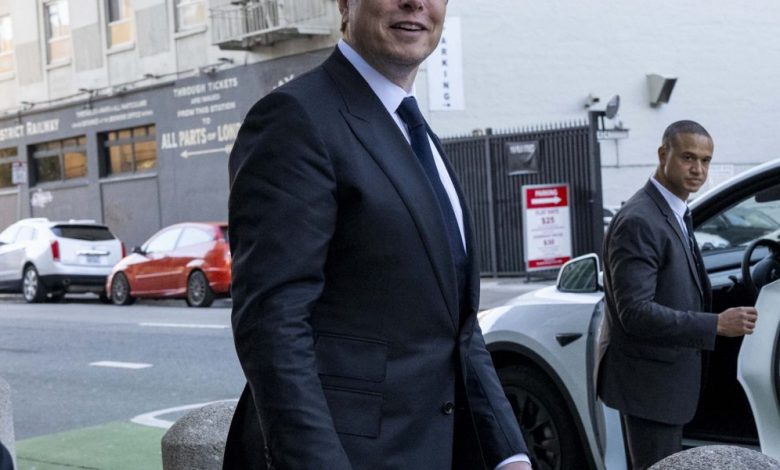Companies can no longer gag employees in severance agreements

This week, the federal government struck down a major labor law decision that could have important repercussions for Elon Musk and other tech industry moguls.
On Tuesday, nearly a dozen former McLaren Macomb hospital employees, represented by an AFL-CIO-affiliated union, won their argument that a severance agreement that enforces a gag rule prevented them from exercising their statutory rights in exchange for welfare benefits.
It comes at a crucial time when tech companies like Tesla, which often rely on their progressive image to attract both customers and workers, are laying off hundreds — and sometimes thousands — of their employees. Oftentimes, employees’ exit contracts contain lengthy and illegal non-degradation clauses to prevent the media from reporting their work practices.
A lawyer representing 100 Twitter employees fired by Elon Musk called it a “truly historic” decision to punish companies that shut workers up.
“If a termination agreement makes receipt of benefits conditional on a promise of non-denigration – e.g. For example, a promise not to badmouth the company or its executives – it is UNLAWFUL,” Lisa Bloom, founder of The Bloom Firm, wrote in a thread published on Social Media on Wednesday. “Best of all, even the OFFER is illegal, even if the worker doesn’t sign it. That’s what Twitter did.”
Important new decision by the National Labor Relations Board affecting the rights of the 100 fired Twitter workers I represent, as well as many other workers!
The termination agreement that Elon Musk and Twitter offered workers last month is ILLEGAL under this decision.
Here’s why.
— Lisa Bloom (@LisaBloom) February 22, 2023
The National Labor Relations Board decision returns interpretation of US law to the status quo ante prior to a 2020 NLRB decision under the Trump administration.
In a statement, NLRB chief executive Lauren McFerran argued it has long been recognized that employers cannot require individual workers to choose between receiving benefits and exercising their rights under the National Labor Relations Act.
“Today’s decision confirms this important principle and restores a longstanding precedent,” said McFerran, who represents the majority view.
The ruling is the latest signal that President Joe Biden’s administration intends to reverse many of the measures enacted under Donald Trump that are hurting organized labor. This is a key constituency that Democrats effectively lost when the ex-president wowed white working-class voters in the Rust Belt with promises of trade wars and an end to the relocation of industrial jobs to China.
Since Biden took office two years ago, the NLRB has morphed from a body that — under Trump — has diluted the very workers rights it was meant to protect during the Great Depression to one that is now aggressively scrutinizing company labor practices questions trade unions that are considered unfair.
What is the NLRB and what is it for?
The National Labor Relations Board is an independent federal agency empowered to uphold workers’ rights to organize for better working conditions and seek collective bargaining. It was founded in 1935, the same year that unions were legalized in the United States.
During the Trump administration, the NLRB became an ally of American corporations. According to the Economic Policy Institute, it met all of the top 10 calls for taking back workers’ rights on a US Chamber of Commerce wish list.
In one of his very first acts, Biden fired NLRB General Counsel Peter Robb on the day of his inauguration. Union allies who helped win back working-class white Trump voters are demanding his head after Robb’s failure to investigate and prosecute unfair labor practices they say. (Trump’s appointees still exercise some influence: Tuesday’s dissenting opinion was authored by Marvin Kaplan, the sole remaining NLRB board member from his administration.)
The new political tide at the NLRB does not bode well for CEOs like Starbucks boss Howard Schultz or Musk, both vocal opponents of the unions.
Tesla, for example, has long relied on its credentials as a climate change advocate to attract wealthy progressive customers tired of supporting the fossil fuel industry by buying internal combustion engine cars.
It doesn’t help when there are headlines that could challenge the company’s narrative as a good corporate citizen. As a result, Musk resorted to lengthy non-disparagement clauses in termination agreements that could have been legally challenged if employees had been informed of their rights.
This week’s ruling could change that. “You get a high-profile case like this and a lot more people might take notice.” New York Times Labor reporter Noam Scheiber said so CBS News On Wednesday.
It might even prevent a future administration, Democrat or Republican, from once again shedding historical precedent. “By spreading the word and raising awareness, you could actually make it harder to undo in the future,” Scheiber added.
Learn how to navigate and build trust in your organization with The Trust Factor, a weekly newsletter exploring what leaders need to succeed. Login here.



